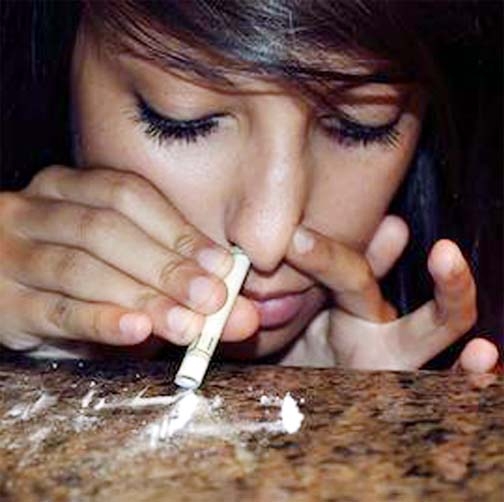
Life Desk :
In young adults, cocaine greatly increases risk of stroke within 24 hours of use, reveals research. Ischemic strokes occur when a blood vessel supplying blood to the brain becomes blocked, preventing a continuous supply of blood to the brain.
“We set out to understand what factors contribute to stroke risk in young adults,” said Yu-Ching Cheng, Ph.D., research scientist at Baltimore Veterans Affairs Medical Center and assistant professor of medicine at the University of Maryland School of Medicine. “These factors could be personal behaviors, medical or environmental factors, or genetic factors.”Cocaine use is one of the risk factors we investigated and we were surprised at how strong an association there is between cocaine and stroke risk in young adults. We found the stroke risk associated with acute cocaine use is much higher than some other stroke risk factors, such as diabetes, high blood pressure and smoking.
“Researchers compared 1,101 people 15 to 49 years old in the Baltimore-Washington, D.C. area who had strokes in 1991-2008 to 1,154 people of similar ages in the general population. More than a quarter of the people in both groups said they had a history of cocaine use, with men being twice as likely as women to report using the drug. Researchers found:
Having a history of cocaine use wasn’t associated with ischemic stroke, regardless of a person’s gender or ethnicity; however, reported acute use of cocaine in the 24 hours prior to stroke was strongly associated with increased risk of stroke across different ethnicities.
Participants were six to seven times more likely to suffer an ischemic stroke within 24 hours of cocaine use.
This elevated stroke risk seemed similar in Caucasians and African-Americans.
“Cocaine is not only addictive, it can also lead to disability or death from stroke,” Cheng said. “With few exceptions, we believe every young stroke patient should be screened for drug abuse at the time of hospital admission.”Despite the strong stroke risk associated with acute cocaine use, in our study only about one-third of young stroke patients had toxicology screenings done during hospitalization. We think the percentage of cocaine use could be higher than we’ve reported.”

